25 Hotel Marketing Strategy Ideas for 2025: Complete Guide
Jul 26, 2025
 Mika Takahashi
Mika TakahashiPopular Categories
Hotel Technology & InnovationHotel Operations OptimizationDigital MarketingIndustry TrendsRevenue ManagementHospitality Industry
Popular Categories
Trending Post
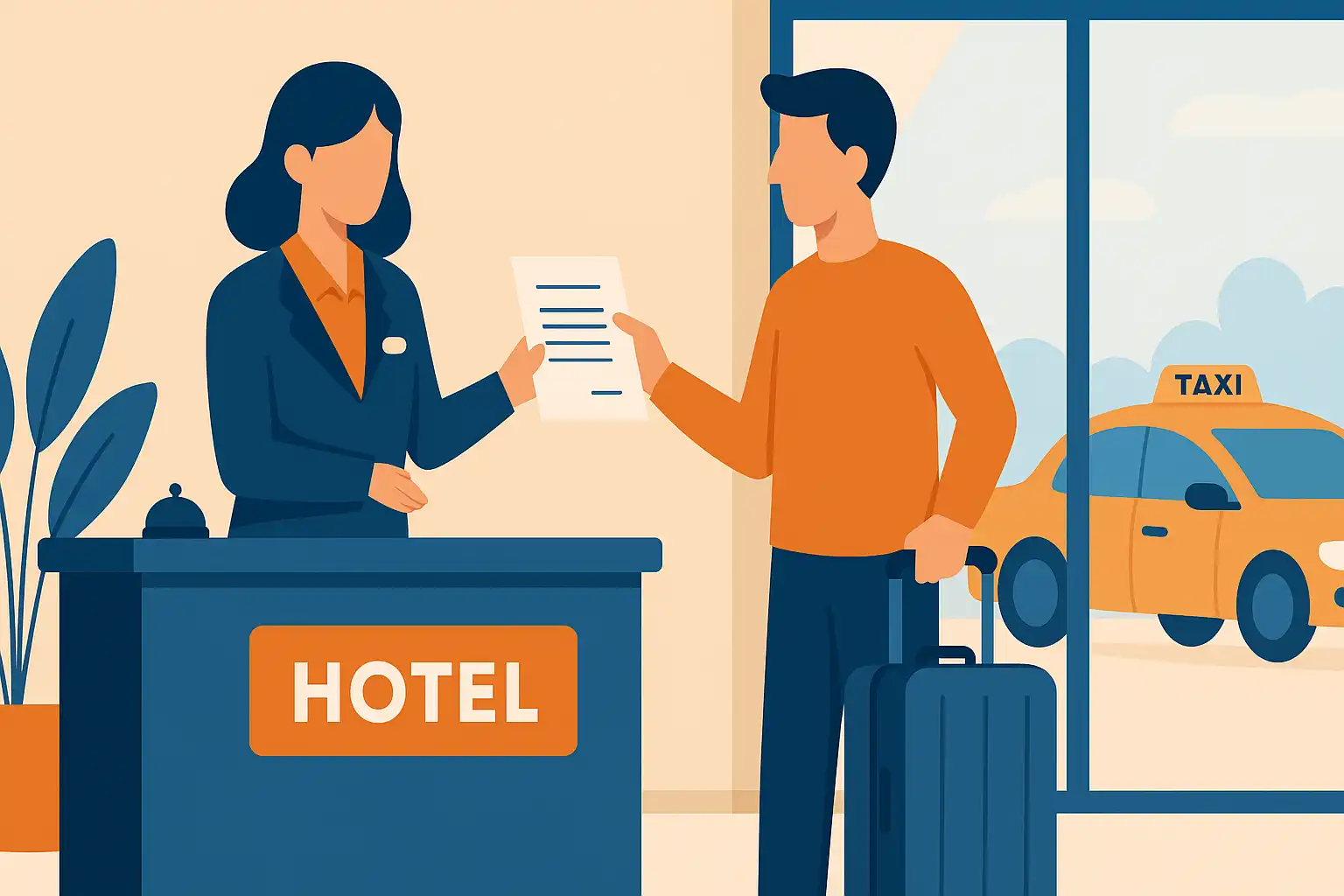
Hotel Walk Letter Template: Professional Guest Communication
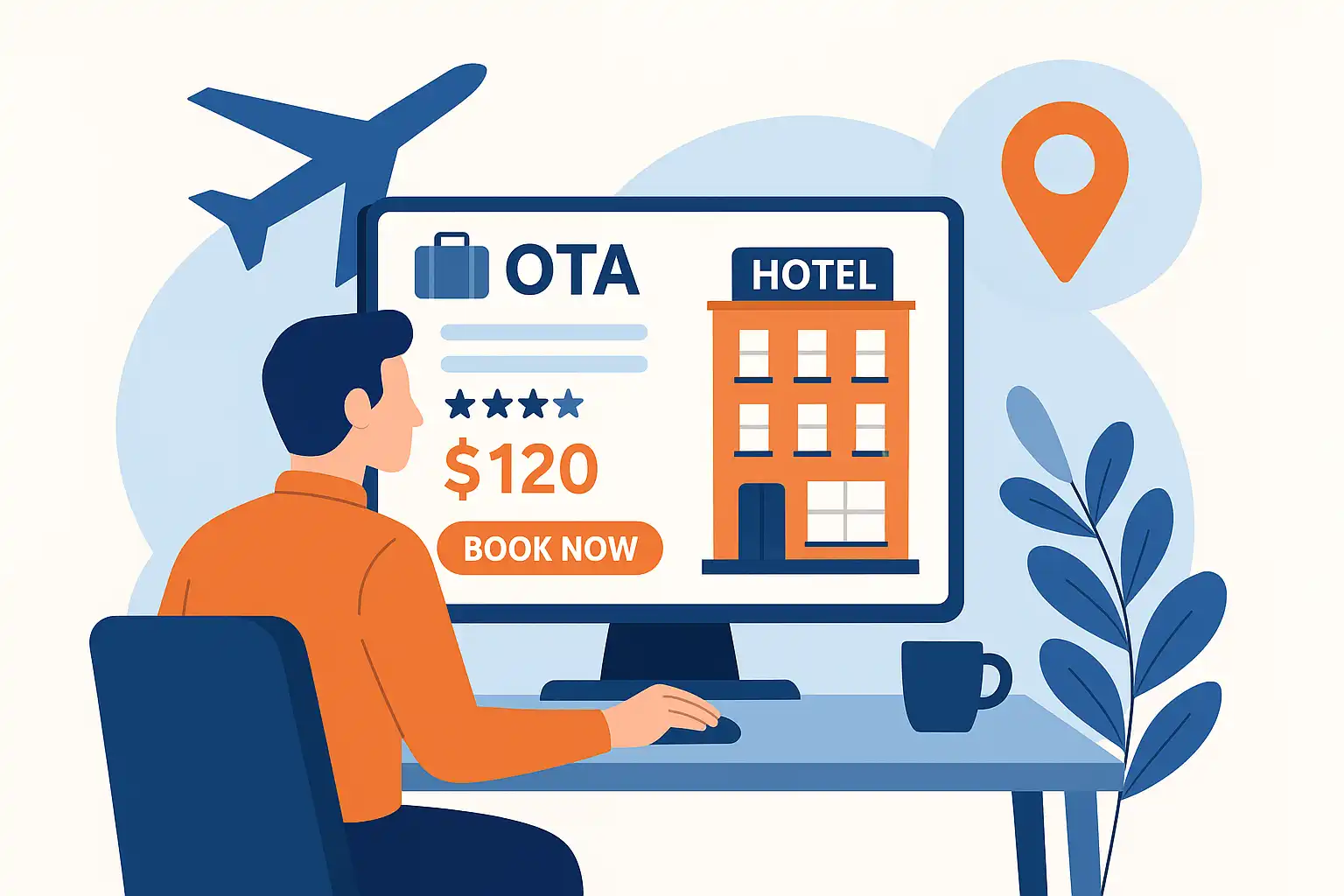
Online Travel Agents: What They Are and How They Work
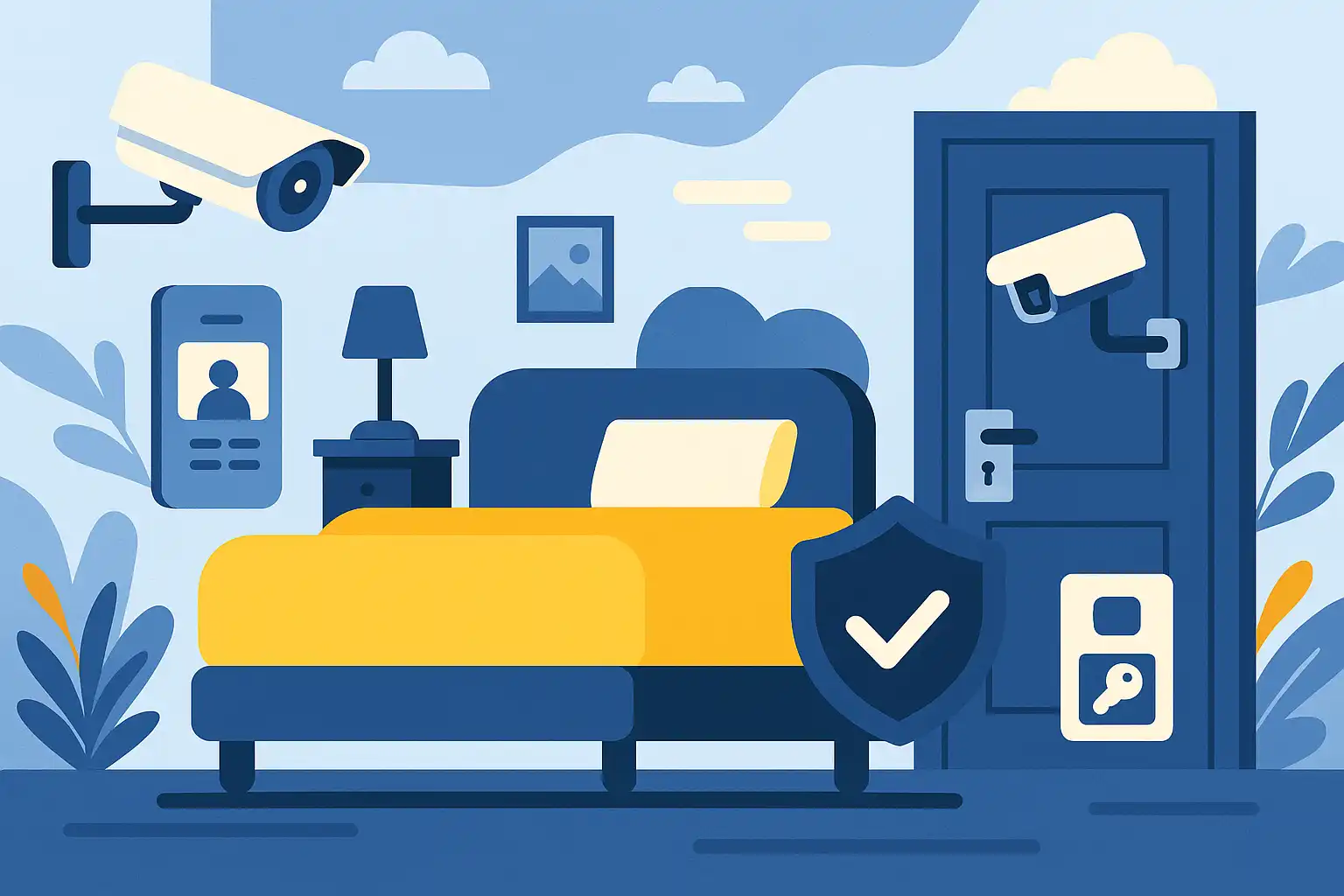
Hotel Security Systems: Modern Protection Solutions

Hotel Advertising: Complete Guide to Boost Bookings and Revenue
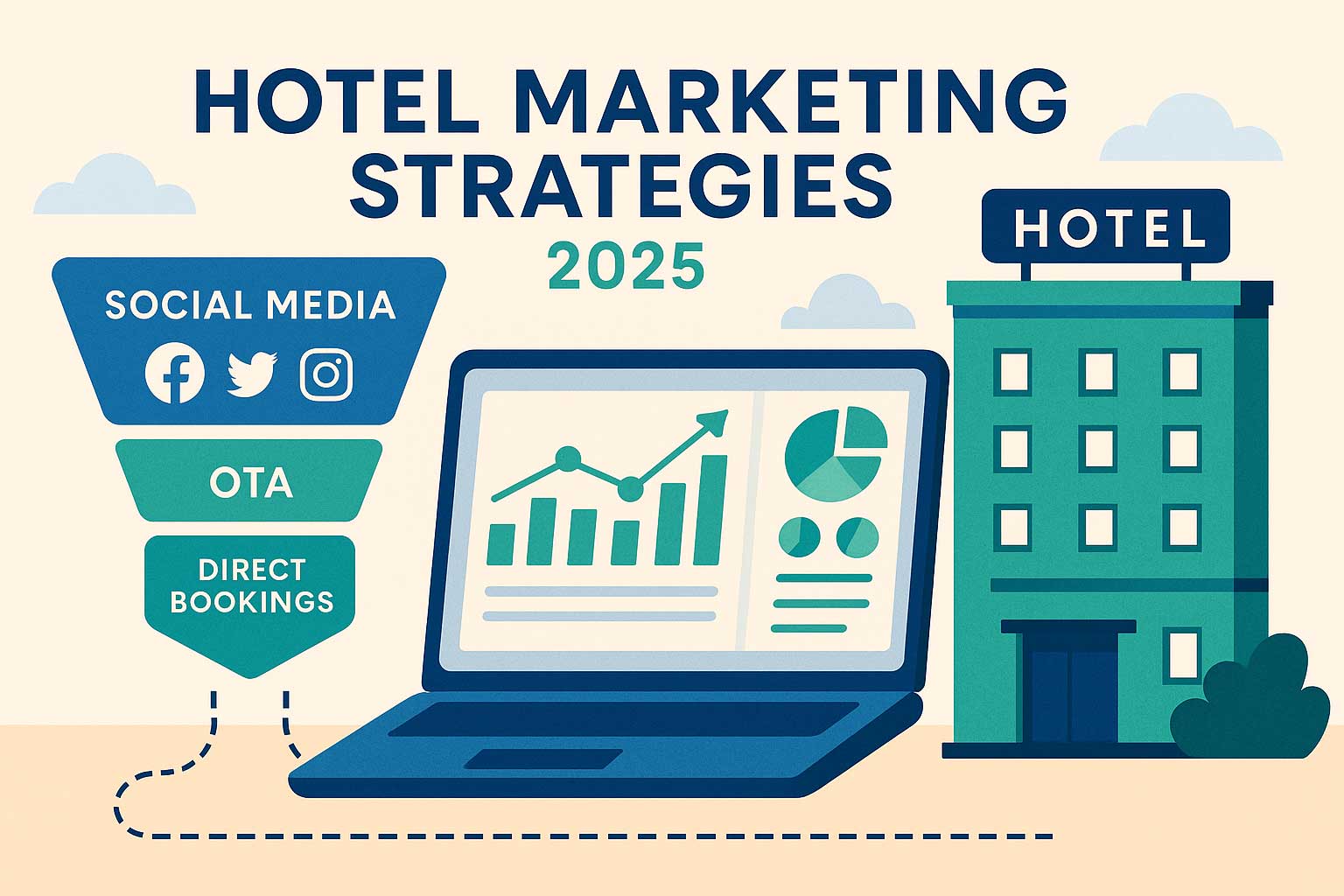
25 Hotel Marketing Strategy Ideas for 2025: Complete Guide

AI Reservation Agent: Revolutionizing Hotel Booking and Guest Experience

PMS Communication: Streamlining Property Management Through Effective Guest Messaging
Table of contents
The hospitality industry experienced a major transformation during the recent years. Hotels need to adjust their marketing approaches because 74% of travelers use digital channels and only 7% seek traditional travel agents in 2023. The online world and mobile-first approach along with personalized experiences are where guests now expect to find hotels.
Hotel marketers face their most significant challenge to date. The control of online travel agencies over bookings remains strong because they charge hotels 15-25% commission fees which makes direct bookings essential for maintaining profitable operations. Guest expectations about digital experiences and instant responses and personalized service continue to increase.
This guide contains 25 tested hotel marketing approaches which help you handle digital complexities while boosting direct bookings and developing enduring guest connections. The following actionable strategies will help boutique hotels and luxury properties maintain market leadership while producing quantifiable outcomes.
Understanding Hotel Marketing Strategy
A hotel marketing strategy involves developing specific promotional methods to showcase your property's features while increasing bookings and establishing brand value in the hospitality sector. Hotel marketing requires special approaches because it needs to handle seasonal demand changes and multiple distribution channels and local market dominance.
Hotels now use digital transformation to establish new ways of reaching potential guests. Hotel marketing strategies today need to guide guests through their entire travel process from discovery to post-visit interaction to achieve both short-term reservations and long-term customer loyalty.
Key Differences from General Marketing
Hotel marketing differs significantly from other industries in several crucial ways:
- Immediacy and perishability: Hotel rooms are perishable inventory that can’t be stored for later sale
- Complex distribution networks: Managing relationships with online travel agencies, metasearch engines, and direct channels
- Hyper-local competition: Competing not just with other hotels but with alternative accommodations and local experiences
- Seasonal demand patterns: Requiring agile campaign scheduling and flexible resource allocation
The Modern Hotel Customer Journey
Understanding the guest journey is fundamental to effective hotel marketing. The typical path includes:
- Awareness Stage: Travelers discover your property through search engines, social media platforms, or recommendations
- Consideration Phase: Prospects compare options, read online reviews, and explore your hotel website
- Booking Process: The critical conversion moment where guests choose between your direct booking engine or third-party platforms
- Pre-Stay Communication: Email marketing campaigns and personalized messages that build excitement
- During-Stay Experience: Mobile apps, in-room technology, and personalized service delivery
- Post-Stay Engagement: Review requests, loyalty program invitations, and targeted promotions for repeat business
Creating Your Hotel Marketing Plan
A hotel marketing strategy development needs a structured data-driven method which matches your property's distinct market position and target guest population.
Setting SMART Marketing Goals
Your hotel marketing efforts should be guided by specific, measurable objectives. Industry-leading hotels typically focus on KPIs such as:
- Occupancy Rate: Target percentages for peak, shoulder, and off-season periods
- Average Daily Rate (ADR): Revenue optimization goals by room type and season
- Revenue Per Available Room (RevPAR): The ultimate profitability metric combining occupancy and rate
- Direct Booking Ratio: Percentage of bookings made through your commission-free booking engine
- Guest Lifetime Value: Long-term revenue potential from repeat bookings and referrals
Budget Allocation Framework
Smart budget allocation across hotel marketing channels ensures the maximum potential return on investment. The data of the hospitality industry suggests the following optimal distribution of budget:
- 25-35%: Digital paid channels (Google Ads, metasearch, social media advertising)
- 20-25%: Website optimization, SEO, and content marketing
- 15-20%: Email marketing and CRM automation
- 10-15%: Social media management and organic content
- 10-15%: Local partnerships, events, and community engagement
Monthly Performance Review Process
Best-in-class hotels perform monthly performance reviews through dashboards which unite sales data with website analytics and channel performance metrics. The data-driven method allows hotels to optimize their marketing activities continuously while shifting resources quickly to successful channels.
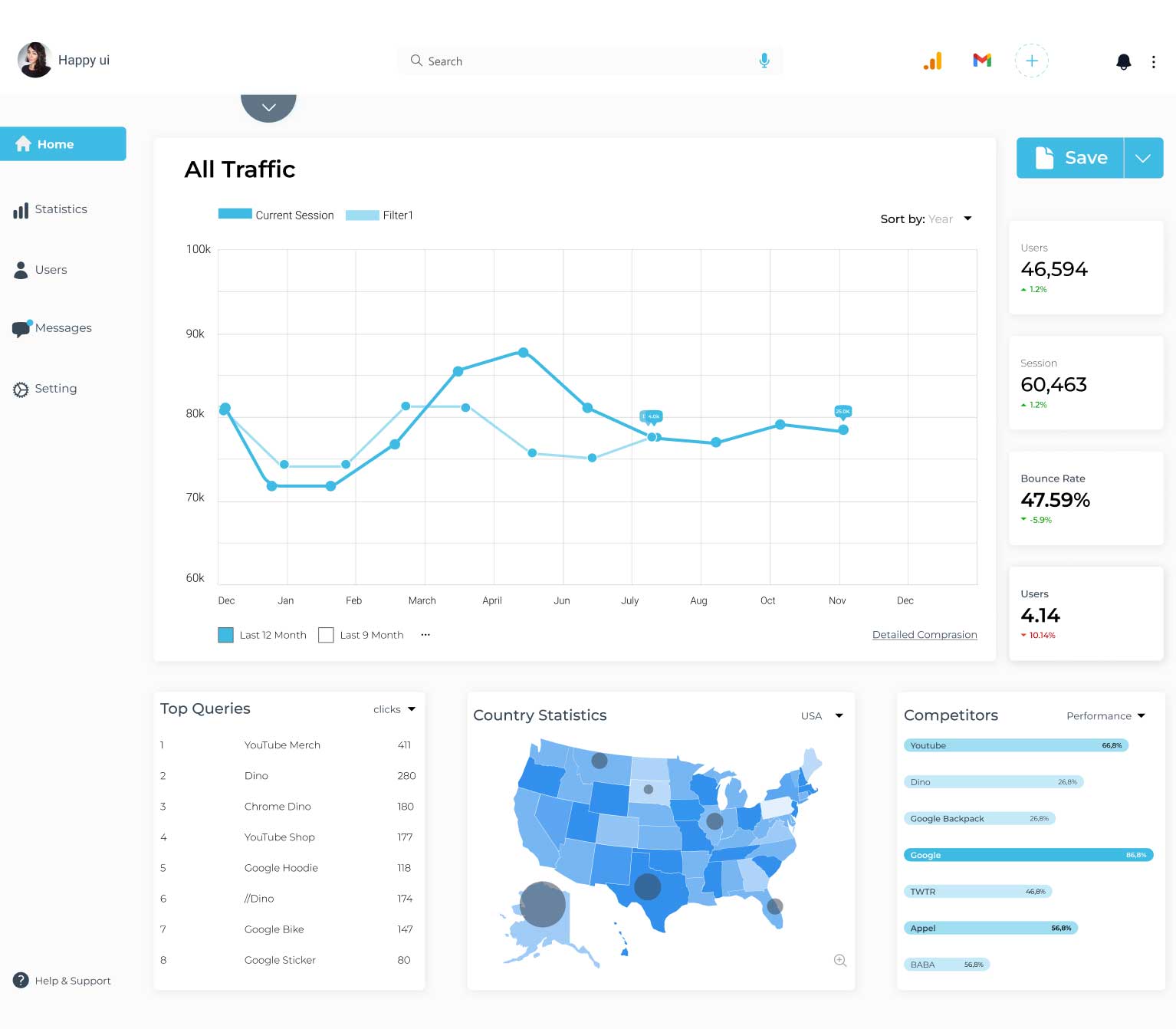
Identifying and Targeting Your Ideal Guests
Hotel marketing success starts with developing a precise understanding of your target audience. Market segmentation enables you to create customized messages while choosing suitable marketing channels and improving booking experiences for various guest segments.
Guest Segmentation Strategies
Consider segmenting your market by:
- Travel Purpose: Business travelers, leisure guests, group bookings, wedding parties
- Demographics: Age groups, income levels, geographic origin, family composition
- Booking Behavior: Advance planners vs. last-minute bookers, package vs. room-only preferences
- Psychographics: Experience-seekers, wellness tourists, digital nomads, luxury travelers
Creating Detailed Guest Personas
Develop comprehensive profiles that include:
- Demographic Information: Age, location, income, occupation, family status
- Travel Preferences: Preferred booking channels, typical stay duration, amenities valued most
- Digital Behavior: Social media platform usage, device preferences, content consumption habits
- Pain Points and Motivations: What drives their travel decisions and potential booking obstacles
Key Questions for Audience Definition
To refine your target audience understanding, regularly ask:
- Who are our most profitable existing guests, and what characteristics do they share?
- Which marketing channels are these guests using to discover and book with us?
- What unique property features or local experiences address specific guest needs?
- How does our ideal guest profile compare to our competitors’ target markets?
Digital Marketing Strategies for Hotels
The foundation of current hotel marketing strategies relies on digital marketing which uses various channels to promote awareness and drive consideration and direct bookings.
Search Engine Optimization (SEO)
SEO remains vital for hotels, as 93% of travel research begins on search engines. A comprehensive SEO strategy includes:
Keyword Research for Hospitality
Focus on location-based terms, experience keywords, and accommodation-specific searches:
- “best hotels in [city]”
- “luxury family resorts [destination]”
- “[hotel name] reviews and amenities”
- “romantic weekend getaways [location]”
On-Page Optimization Tactics
- Optimize title tags and meta descriptions with target keywords and compelling calls-to-action
- Implement local SEO elements including NAP (Name, Address, Phone) consistency
- Create location-specific landing pages for nearby attractions and events
- Ensure mobile-first design with fast loading speeds
Content Marketing for Hotels
Develop valuable content that attracts organic traffic:
- Destination guides highlighting local attractions and hidden gems
- Seasonal travel tips and event calendars
- Behind-the-scenes property stories and staff interviews
- Guest experience narratives and testimonials
Technical SEO Considerations
- Implement schema markup for ratings, amenities, and availability
- Optimize booking engine crawlability and SSL security
- Monitor Core Web Vitals and mobile usability
- Create XML sitemaps for all property pages and content
Paid Advertising and Search Engine Marketing
Strategic paid advertising improves and expands your organic reach while targeting high-intent travelers:
Google Hotel Ads Strategy
Google Hotel Ads display your rates and availability directly in search engine results, competing with OTA listings. Key tactics include:
- Optimize hotel data feeds with accurate pricing and availability
- Use competitive bidding strategies during peak booking seasons
- Implement dynamic remarketing to show personalized ads to previous visitors
- Monitor share-of-voice against local competitors
Metasearch Marketing
Platforms like TripAdvisor, Kayak, and Trivago allow hotels to compete directly with online travel agencies:
- Maintain updated rate parity across all channels
- Optimize property photos and descriptions for each platform
- Monitor competitor positioning and adjust bids accordingly
- Track attribution to understand the full guest journey
Social Media Advertising
Facebook and Instagram ads excel at building brand awareness and driving direct bookings:
- Create carousel ads showcasing different room types and amenities
- Use video ads for virtual property tours and experience highlights
- Implement Facebook Pixel for retargeting website visitors
- Target lookalike audiences based on your best guests
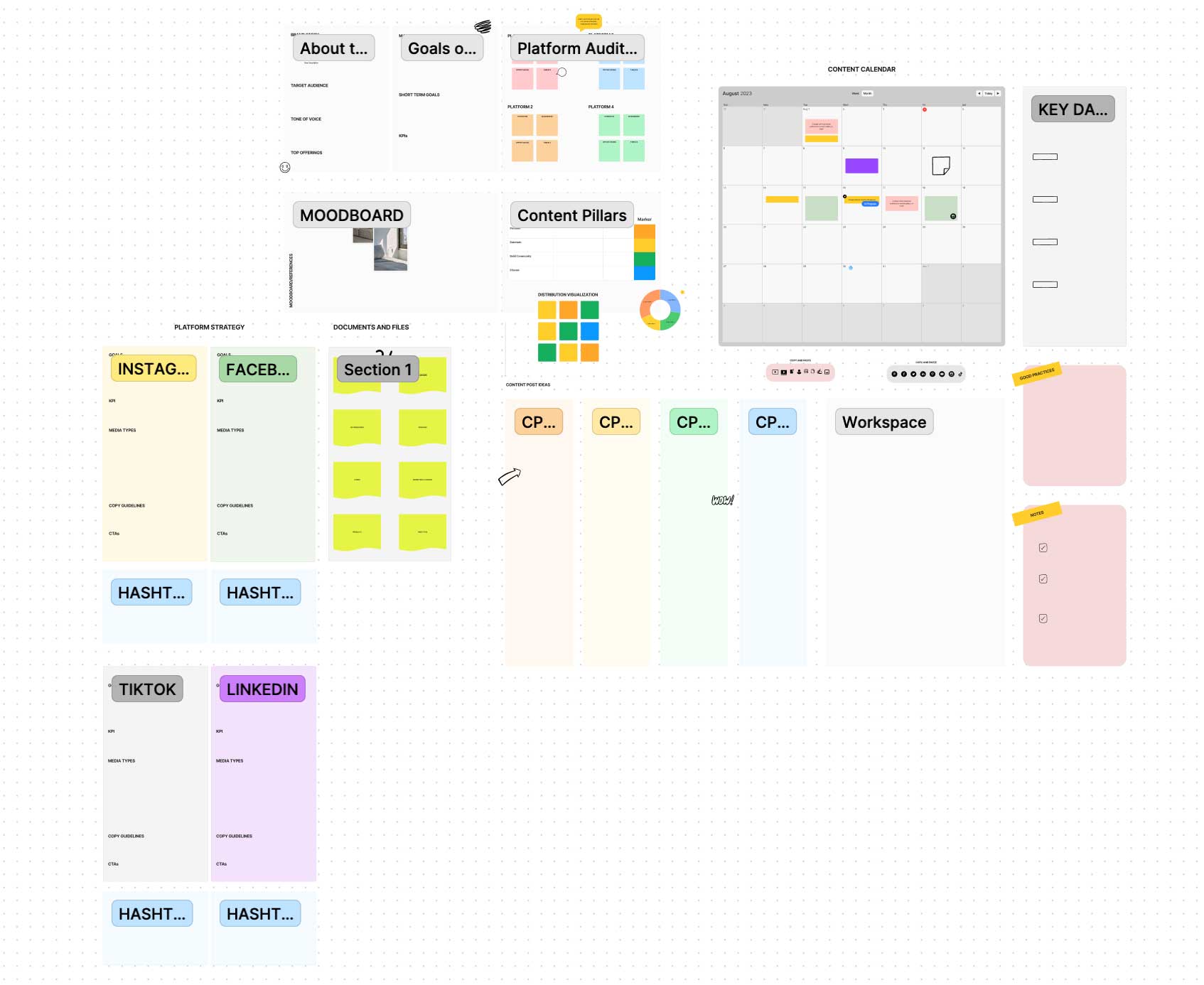
Social Media Marketing
Each platform needs a specific strategy to achieve maximum engagement and booking success:
Instagram Strategy
- Share high-quality photos of rooms, amenities, and local attractions
- Use Instagram Stories for behind-the-scenes content and real-time updates
- Partner with local influencers for authentic destination marketing
- Create location-based hashtags to encourage user-generated content
Facebook Marketing
- Maintain an active business page with regular updates and guest interactions
- Create Facebook Events for special promotions and local happenings
- Use Facebook Groups to build community around your destination
- Implement Messenger chatbots for instant guest support
TikTok for Hotels
- Create short-form videos showcasing unique property features
- Participate in trending challenges with hotel-specific twists
- Share “day in the life” content from staff perspectives
- Highlight local experiences and attractions near your property
YouTube Content Strategy
- Produce high-quality virtual tours and room walkthroughs
- Create destination guides and local experience videos
- Share guest testimonials and success stories
- Develop educational content about local culture and attractions
Website Optimization and Direct Bookings
Your hotel website functions as the main platform to attract direct bookings while minimizing your need for commission-based OTA platforms.
Essential Website Features
Hotels need to optimize their websites for mobile devices since 68% of their website visitors use mobile devices. Critical elements include:
Mobile-First Design
- Responsive layouts that adapt to all screen sizes
- Touch-friendly navigation and booking interfaces
- Fast loading speeds (under 3 seconds)
- Streamlined booking process with minimal form fields
Commission-Free Booking Engine
- Integrated reservation system with real-time availability
- Secure payment processing with multiple payment options
- Rate parity guarantees and best price promises
- Upselling opportunities for room upgrades and packages
Visual Storytelling Elements
- High-resolution photography showcasing rooms and amenities
- 360-degree virtual tours and video walkthroughs
- Interactive maps highlighting nearby attractions
- Guest review integration and social proof
Conversion Optimization Strategies
A/B Testing Framework Continuously test different elements to maximize booking conversions:
- Call-to-action button colors, text, and placement
- Booking form layouts and required fields
- Special offer presentations and urgency messaging
- Room type descriptions and pricing displays
Personalization Tactics
- Dynamic content based on visitor location and previous searches
- Personalized package recommendations based on travel dates
- Returning visitor recognition with tailored offers
- Weather-based content and activity suggestions
Chatbot Implementation Deploy AI-powered chatbots to provide instant guest support:
- Answer frequently asked questions about amenities and policies
- Assist with booking modifications and special requests
- Provide local area recommendations and directions
- Capture leads for future follow-up when human agents are unavailable
Content Marketing and Storytelling
Hotels can create emotional bonds with potential guests through compelling content marketing which simultaneously boosts search engine rankings and positions them as industry leaders.
Blog Content Strategy
Destination Guides and Local Insights: Develop detailed guides which establish your hotel as the authority in the local area:
- Seasonal activity recommendations and event calendars
- Hidden gems and off-the-beaten-path attractions
- Restaurant reviews and local cuisine highlights
- Transportation tips and area navigation guides
Experience-Focused Narratives: Share stories that help guests envision their stay:
- Detailed spa treatment descriptions and wellness packages
- Romance package features for couples and honeymoners
- Family-friendly activities and kid-approved amenities
- Business traveler conveniences and meeting facilities
Video Marketing Excellence
Video content plays a major role in booking decisions because 72% of travelers confirm that video tours affect their accommodation selection. The following video strategies prove effective:
Virtual Tours and Walkthroughs
- Room type showcases highlighting unique features and amenities
- Property tour videos covering public spaces and facilities
- Aerial drone footage showcasing location and surroundings
- 360-degree immersive experiences for online exploration
Guest Testimonial Videos
- Authentic reviews from recent guests sharing their experiences
- Staff interview videos highlighting personalized service
- Before-and-after transformation stories from spa treatments
- Special event coverage showcasing your venue capabilities
User-Generated Content Campaigns
Guests should be encouraged to produce content that displays genuine experiences:
Hashtag Campaigns
- Create memorable, location-specific hashtags for social sharing
- Offer incentives for guests who share photos using your hashtags
- Curate the best user-generated content for your marketing channels
- Feature guest photos in email marketing campaigns and website galleries
Review and Testimonial Integration
- Showcase positive reviews prominently on your hotel website
- Create video testimonials from satisfied guests
- Respond professionally to all online reviews to demonstrate care
- Use review highlights in social media content and advertising
Email Marketing and Guest Communication
Hotels achieve their highest return on investment through hotel email marketing because it allows them to deliver personalized messages to guests at every stage of their journey.
List Building and Segmentation
Strategic List Building
- Offer valuable lead magnets like local area guides or exclusive discounts
- Implement exit-intent popups with special offers for first-time visitors
- Collect email addresses during the booking process and check-in
- Partner with local businesses for cross-promotional list building
Advanced Segmentation Strategies Segment your email lists based on:
- Past booking behavior and stay frequency
- Room type preferences and spending patterns
- Geographic location and seasonal travel patterns
- Special interests like spa treatments, dining, or business amenities
Automated Email Sequences
Pre-Stay Communication Series
- Booking confirmation with upselling opportunities for spa treatments or dining
- Pre-arrival emails with local weather, events, and packing suggestions
- Mobile check-in instructions and special request collection
- Last-minute upgrade offers and package additions
During-Stay Engagement
- Welcome messages with WiFi passwords and property information
- Daily activity suggestions based on weather and local events
- Concierge recommendations for dining and entertainment
- Feedback collection for real-time service recovery
Post-Stay Follow-Up
- Thank you messages with photos from their stay
- Review request emails with direct links to preferred platforms
- Loyalty program invitations and points balance updates
- Targeted promotions for future stays based on their preferences
Email Performance Optimization
Subject Line Testing Test different approaches to maximize open rates:
- Personalization with guest names and stay details
- Urgency messaging for limited-time offers
- Benefit-focused headlines highlighting value
- Emoji usage for visual appeal (when appropriate for your brand)
Content Personalization
- Dynamic content blocks showing relevant packages and amenities
- Location-based recommendations for local experiences
- Previous stay references and photo callbacks
- Seasonal messaging aligned with travel patterns
Revenue Management and Pricing Strategies
The integration of modern revenue management systems with hotel marketing operations enables hotels to achieve maximum occupancy and profitability.
Dynamic Pricing Implementation
Data-Driven Rate Optimization Use revenue management software that considers:
- Competitor pricing analysis and market positioning
- Historical booking patterns and demand forecasting
- Local event calendars and seasonal trends
- Real-time booking pace and inventory levels
Package Creation Strategies Create packages that increase average daily rate:
- Romantic packages with spa treatments, champagne, and late checkout
- Business traveler packages including breakfast, WiFi, and meeting room access
- Family packages with connecting rooms, kid-friendly amenities, and local attraction tickets
- Extended stay packages with weekly rates and complimentary services
Upselling and Cross-Selling
Pre-Arrival Upselling
- Email campaigns featuring room upgrades at discounted rates
- Spa treatment add-ons with booking confirmation messages
- Dining package inclusions with advance reservation benefits
- Transportation and tour booking through hotel partnerships
On-Site Revenue Enhancement
- Mobile app notifications for same-day spa availability
- In-room dining promotions during peak restaurant hours
- Late checkout offers for an additional fee
- Local experience bookings through concierge services
Competitive Analysis Framework
Rate Shopping Best Practices
- Daily competitor rate monitoring across all room types
- OTA positioning analysis and rate parity maintenance
- Package comparison and value proposition assessment
- Seasonal pricing strategy evaluation and adjustment
Reputation Management and Guest Reviews
Hotels need to manage their reputation because online reviews determine both how customers choose their accommodations and how search engines rank their properties.
Review Platform Management
Multi-Platform Strategy Monitor and manage reviews across:
- Google Business Profile for local search visibility
- TripAdvisor for travel planning influence
- Booking.com and other OTA platforms where you’re listed
- Social media platforms where guests might share experiences
Response Strategy Framework
- Respond to positive reviews with gratitude and specific details
- Address negative reviews professionally with solutions and offline follow-up
- Maintain consistent brand voice across all platform responses
- Use reviews as feedback for operational improvements
Encouraging Guest Reviews
Strategic Review Solicitation
- Send review requests 24-48 hours after checkout when experience is fresh
- Provide direct links to your preferred review platforms
- Offer small incentives like loyalty points for honest feedback
- Train staff to mention review platforms during positive guest interactions
Review Generation Tactics
- QR codes in guest rooms linking to review platforms
- Follow-up phone calls for VIP guests requesting feedback
- Social media campaigns encouraging sharing of experiences
- Partnership with guest services to identify satisfied guests for review requests
Converting Reviews into Marketing Content
Social Proof Integration
- Feature positive review excerpts on your hotel website homepage
- Create social media graphics highlighting guest testimonials
- Include review highlights in email marketing campaigns
- Use guest quotes in paid advertising copy
Local Marketing and Partnerships
Your hotel can build stronger local ties which will improve its community standing and generate important marketing potential.
Community Partnership Development
Local Business Collaborations
- Restaurant partnerships offering guest discounts and special menus
- Attraction partnerships with exclusive access or package deals
- Transportation partnerships for airport shuttles and local tours
- Retail partnerships with local artisans and specialty shops
Event-Based Marketing
- Sponsor local festivals and community events for brand visibility
- Create special packages around major area events and conferences
- Partner with wedding venues and event planners for group bookings
- Collaborate with local sports teams for fan package offerings
Destination Marketing Organization (DMO) Participation
Collective Marketing Benefits
- Participate in DMO advertising campaigns and trade shows
- Leverage DMO research and market intelligence
- Access to group booking opportunities and leads
- Co-op advertising opportunities with other local businesses
Local Event Partnerships
- Music festival accommodation packages with shuttle service
- Sports event partnerships with team merchandise and tickets
- Conference and convention group booking arrangements
- Seasonal event tie-ins like harvest festivals or holiday celebrations
Loyalty Programs and Guest Retention
Hotels should prioritize guest retention because repeat business produces higher profit margins than acquiring new customers.
Loyalty Program Design
Program Structure Options
- Points-based systems with room night and spending accumulation
- Tiered programs with increasing benefits at each level
- Experiential rewards focusing on unique local experiences
- Referral programs incentivizing word-of-mouth marketing
Technology Integration
- Property management system integration for seamless point tracking
- Mobile app development for easy account management
- Email automation for point balance updates and reward notifications
- Social media integration for sharing achievements and experiences
Guest Retention Strategies
Personalization at Scale
- Birthday and anniversary recognition with special offers
- Previous stay preferences automatically applied to future bookings
- Customized package recommendations based on past spending patterns
- Preferred room assignment and amenity delivery
VIP Treatment Programs
- Exclusive check-in areas and expedited service
- Complimentary room upgrades based on availability
- Personal concierge services for frequent guests
- Early access to special events and new amenities
Measuring Loyalty Program Success
Key Performance Indicators
- Repeat booking ratio and frequency increases
- Guest lifetime value calculations and trends
- Program enrollment rates and active member engagement
- Revenue per member compared to non-members
Emerging Technologies and Trends
Hotels that stay ahead of technological trends can provide innovative guest experiences while maximizing their marketing effectiveness.
Artificial Intelligence Applications
Marketing Automation
AI-powered systems can handle 60-80% of guest queries instantly while increasing direct sales through intelligent upsell recommendations. Applications include:
- Chatbot deployment for 24/7 customer service
- Dynamic pricing optimization based on demand patterns
- Personalized content delivery based on browsing behavior
- Predictive analytics for marketing campaign optimization
- Voice-activated room controls and information systems
- Personalized app experiences with AI-powered recommendations
- Automated check-in and check-out processes
- Intelligent room assignment based on guest preferences
Voice Search Optimization
The importance of voice search optimization grows stronger because 22% of hotel searches begin through voice assistants.
Voice SEO Strategies
- Optimize for conversational, long-tail keywords
- Create FAQ content that answers natural language questions
- Implement structured data markup for rich search results
- Focus on local search optimization for “near me” queries
Virtual and Augmented Reality
Property Showcasing VR tours can increase booking conversion rates by 17%, making them valuable marketing tools:
- 360-degree room tours and property walkthroughs
- Virtual destination experiences highlighting local attractions
- AR apps that provide information overlays during property tours
- Virtual event space tours for meeting and wedding planners
Sustainability Marketing
The growing awareness of environmental issues drives 47% of travelers to select accommodations based on sustainability which makes sustainable marketing strategies more vital than ever:
Green Marketing Strategies
- Highlight eco-friendly certifications and practices
- Showcase renewable energy and waste reduction initiatives
- Partner with local conservation organizations
- Create packages that include sustainable local experiences
Performance Measurement and Analytics
Data-driven decision making enables your hotel marketing strategies to produce quantifiable results while allowing for ongoing improvement.
Essential KPIs for Hotel Marketing
Revenue Metrics
- Average Daily Rate (ADR) tracking across all segments
- Revenue Per Available Room (RevPAR) for overall performance assessment
- Total Revenue Per Guest including ancillary spending
- Direct booking revenue percentage and growth trends
Marketing Performance Indicators
- Website conversion rates by traffic source and campaign
- Cost per acquisition (CPA) for each marketing channel
- Email marketing open rates, click-through rates, and revenue per email
- Social media engagement rates and follower growth
Analytics Implementation
Google Analytics 4 Setup
- Enhanced ecommerce tracking for booking funnel analysis
- Goal configuration for micro and macro conversions
- Audience segmentation for different guest types
- Attribution modeling to understand multi-touch customer journeys
Marketing Attribution
- Cross-channel attribution to identify the most effective marketing mix
- Customer journey mapping from awareness to booking
- Lifetime value tracking for long-term marketing ROI assessment
- Seasonal performance analysis for budget allocation optimization
Reporting and Optimization
Monthly Performance Reviews
- Channel performance analysis with budget reallocation recommendations
- Competitive positioning updates and market share tracking
- Guest satisfaction correlation with marketing channel performance
- Emerging trend identification and strategy adjustment recommendations
Quarterly Strategic Assessment
- Marketing strategy effectiveness evaluation
- ROI analysis for major campaigns and initiatives
- Market condition changes and competitive landscape updates
- Technology upgrade recommendations and implementation planning
25 Hotel Marketing Strategy Action Items
The following checklist provides detailed actionable strategies to help you implement these methods effectively:
Foundation Building (Strategies 1-5)
- Audit your current guest data to create detailed personas based on booking behavior, preferences, and profitability
- Implement a commission-free booking engine with mobile optimization and real-time availability
- Set up Google Analytics 4 with enhanced ecommerce tracking and conversion goal configuration
- Develop a content calendar covering seasonal events, local attractions, and property highlights
- Create a monthly performance review process tracking ADR, RevPAR, and direct booking ratios
SEO and Content Marketing (Strategies 6-10)
- Conduct keyword research focusing on location-based and experience-driven search terms
- Optimize your Google Business Profile with current photos, amenities, and review responses
- Launch a hotel blog featuring destination guides, local insights, and guest experience stories
- Implement schema markup for ratings, amenities, and booking information
- Create location-specific landing pages for nearby attractions, events, and business districts
Social Media and Digital Advertising (Strategies 11-15)
- Develop platform-specific social media strategies for Instagram, Facebook, and TikTok
- Launch Google Hotel Ads campaigns with competitive bidding and dynamic remarketing
- Create user-generated content campaigns with branded hashtags and guest photo contests
- Implement Facebook and Instagram advertising with carousel ads and video content
- Set up retargeting campaigns for website visitors who didn’t complete bookings
Email Marketing and Communication (Strategies 16-20)
- Build automated email sequences for pre-stay, during-stay, and post-stay communication
- Segment email lists based on guest type, booking behavior, and preferences
- Implement chatbots for instant customer service and lead qualification
- Create personalized offers based on past stay data and seasonal preferences
- Launch a monthly newsletter featuring local events, hotel updates, and exclusive offers
Revenue Management and Retention (Strategies 21-25)
- Implement dynamic pricing using revenue management software and competitor analysis
- Develop package offerings for different guest segments and seasonal demand
- Launch a loyalty program with meaningful rewards and tier-based benefits
- Create partnerships with local businesses, attractions, and event organizers
- Establish a reputation management system for monitoring and responding to reviews across all platforms
Conclusion
The hospitality industry needs a strategic multi-channel approach to hotel marketing during its digital transformation. Success demands more than maintaining an online presence because it needs sophisticated guest behavior understanding and data-driven decision making and seamless integration across all guest journey touchpoints.
The 25 strategies presented in this guide establish a complete system to decrease online travel agency dependence while creating direct guest connections. The marketing ecosystem combines various strategies including search engine optimization and social media marketing and advanced email automation and AI-powered personalization to achieve direct bookings and guest loyalty.
Hotel marketing remains an ongoing process which needs regular monitoring and testing along with continuous optimization. The most successful properties track their performance metrics and stay informed about industry trends while adjusting their strategies to match guest expectations and market conditions.
Begin by evaluating your present marketing strategies against this framework to determine the most significant areas for enhancement then execute changes methodically. Establish a solid website and booking engine foundation before you move forward to implement advanced marketing strategies which include AI personalization and voice search optimization.
Hotel marketing strategies which receive comprehensive investment lead to higher direct bookings and elevated guest lifetime value and decreased dependence on commission-based distribution channels. These tested marketing strategies will position you for success in the competitive hospitality industry throughout 2025 and future years.
